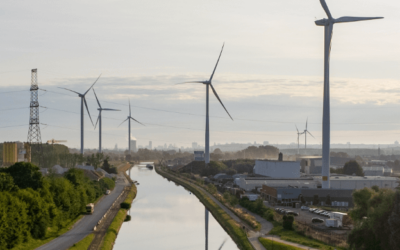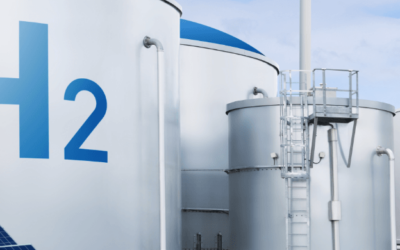Recently the European Commission launched a new Horizon Europe call: ‘Sustainable, secure and competitive energy supply’. This call, part of the Horizon Europe Work programme 2021-2022, will target energy projects with a focus on Research and Investigation (R&I). A budget of 99 million euros will be available for a variety of topics such as sustainable energy supply and renewable energy value chains. In this article we will briefly describe all topics. The deadline for submitting proposals is 27 October 2022.
Destination ‘Sustainable, secure and competitive energy supply’
The recently launched call ‘Sustainable, secure and competitive energy supply’ (HORIZON-CL5-2022-D3-02) is the penultimate in the Horizon Europe Work programme 2021-2022 , Cluster 5 ‘Climate Energy and Mobility’. It aims for global leadership in renewable energy and is included under the Destination with the same name. This Destination includes R&I activities targeting a sustainable, secure and competitive energy supply. The transition of the energy system will rely on reducing the overall energy demand and making the energy supply side climate neutral. R&I actions will help make the energy supply side cleaner, more secure, and competitive. How? By boosting cost performance and reliability of a broad portfolio of renewable energy solutions, in line with societal needs and preferences.
Variety of topics
The call consists of various topics, eight all together. We will describe them briefly, you will find the the type of action in brackets: Innovation Action (IA) or Research and Innovation Action (RIA).
- Digital solutions for defining synergies in international renewable energy value chains (RIA):
Development of novel real time and open data monitoring and/or simulation solutions (for instance including digital twins) for sustainable energy production and consumption, predictive modelling and artificial intelligence for the analysis of international renewable energy value chains.
- AU-EU Energy System Modelling (RIA):
The topic is contributing to the activities of the AU-EU High Level Policy Dialog (HLPD) Climate Change and Sustainable Energy (CCSE) partnership. Current models are based on developed country standard and usage. The development of energy system models tailored to the specific African social, economic and regulatory environment is crucial for energy generation system planning and for energy policy development.
- Innovative renewable energy carrier production for heating from renewable energies (IA):
Demonstrate cost-effective and energy-, catalyst and equipment material-efficient transformation of renewable energy into renewable energy carriers for heating, while ensuring very good combustion properties in respect of efficiency and avoidance of pollutants and environmental and socioeconomic sustainability of the respective heating supply and value chains.
- Technological interfaces between solar fuel technologies and other renewables (RIA):
Development of energy transmitting technological interfaces to couple solar fuel technologies to other renewables such as from for instance biosources or directly connected renewable power generation, which allow for efficient feed in of other forms of renewable energy into solar fuel conversion technologies and allow for efficient and continuous renewable fuel production.
- Renewable energy carriers from variable renewable electricity surplus and carbon emissions from energy consuming sectors (IA):
Demonstration of renewable energy carrier synthesis from variable renewable electricity surplus and carbon emissions from energy consuming sectors, which is targeting improvement of the overall synthesis value chain efficiency and viability while making best use of the CO2 emissions in synergy with renewable electricity generation.
- Direct renewable energy integration into process energy demands of the chemical industry (RIA):
Development of the technology and the methodology of integrating renewable energy in chemical processing by substituting fossil process energy in chemical industry, which has a high carbon footprint due to processing relative to the mass of the final product.
- Renewable energy incorporation in agriculture and forestry (IA):
Proposals should demonstrate incorporation of renewable energy technologies in agriculture or forestry to meet its electricity, heat, cold, waste and land management needs.
- Demonstration of complete value chains for advanced biofuel and non-biological renewable fuel production (IA):
Proposals should demonstrate innovative and cost-effective sustainable value chains for advanced biofuels or synthetic renewable fuels of non-biological origin (other than for hydrogen as a final product), over the entire cycle from feedstock to end use.
What grant rates to expect?
This call contains both Innovation Actions and Research and Innovation Actions, evenly divided. For projects that are classified as an ‘Innovation Action, Horizon Europe usually reimburses up to 70% of the project costs. This will often be the case for projects that focus on new or greatly improved products, processes or services (such as prototyping, tests, demonstrations and pilot projects). In other cases, Horizon Europe grants can even amount to 100% of the project costs: this applies in particular to projects in the form of a Research and Innovation Action. Our experts can of course tell you more about these categories.
Grant contribution, application deadline
The grant contribution from the European Commission varies from 2.5 up to 10 million euros per project depending on the topic. Submitting an application is possible until 27 October 2022 (17:00 CET). Developing a well elaborated project proposal for Horizon Europe will take you at least three months. So what are you waiting for? Only the best proposals will receive a grant.
What can EGEN do for you?
EGEN is highly experienced in both writing and developing energy projects. Want to know more about Horizon Europe Energy and how EGEN can support you with your project or application? Please contact us at +31 (0)88 838 13 81 or fill in the contact form below.


